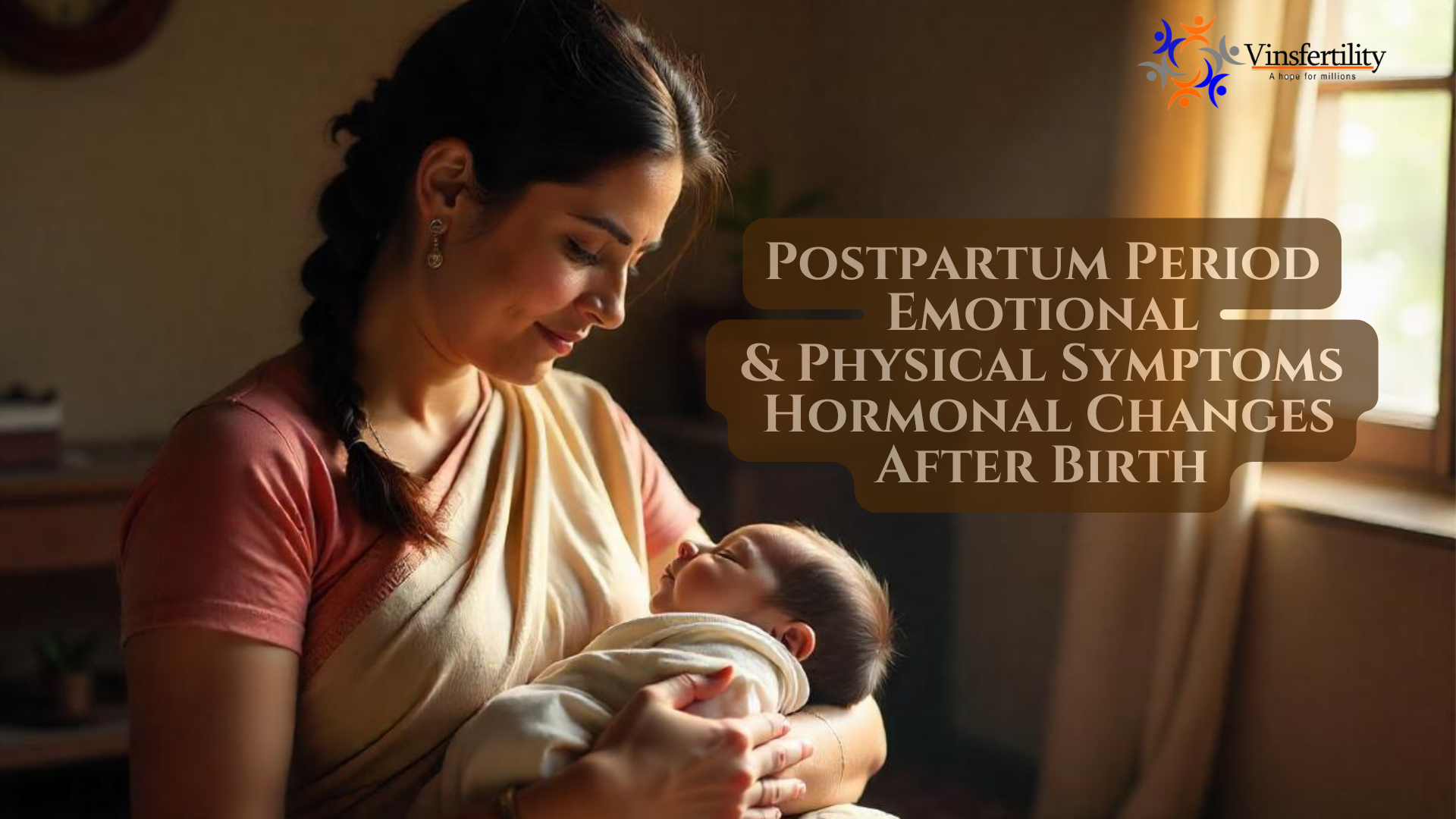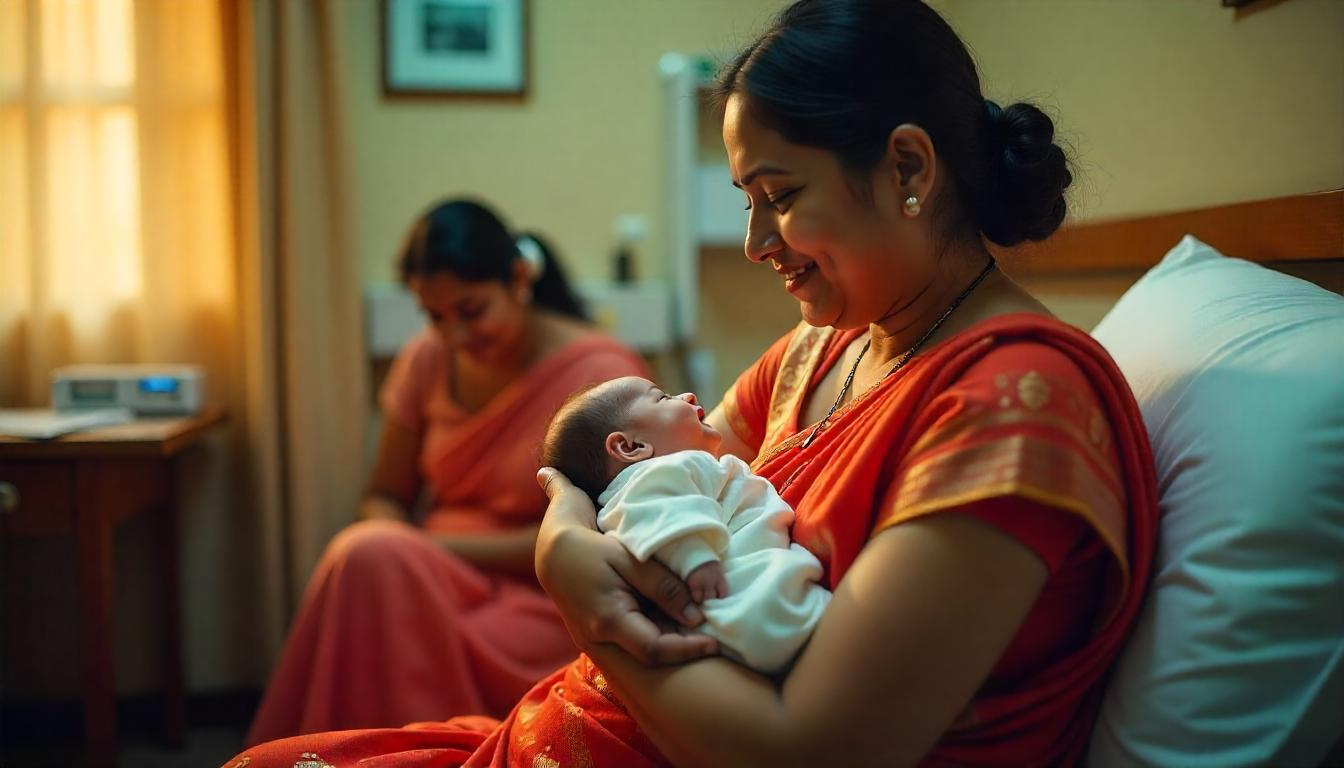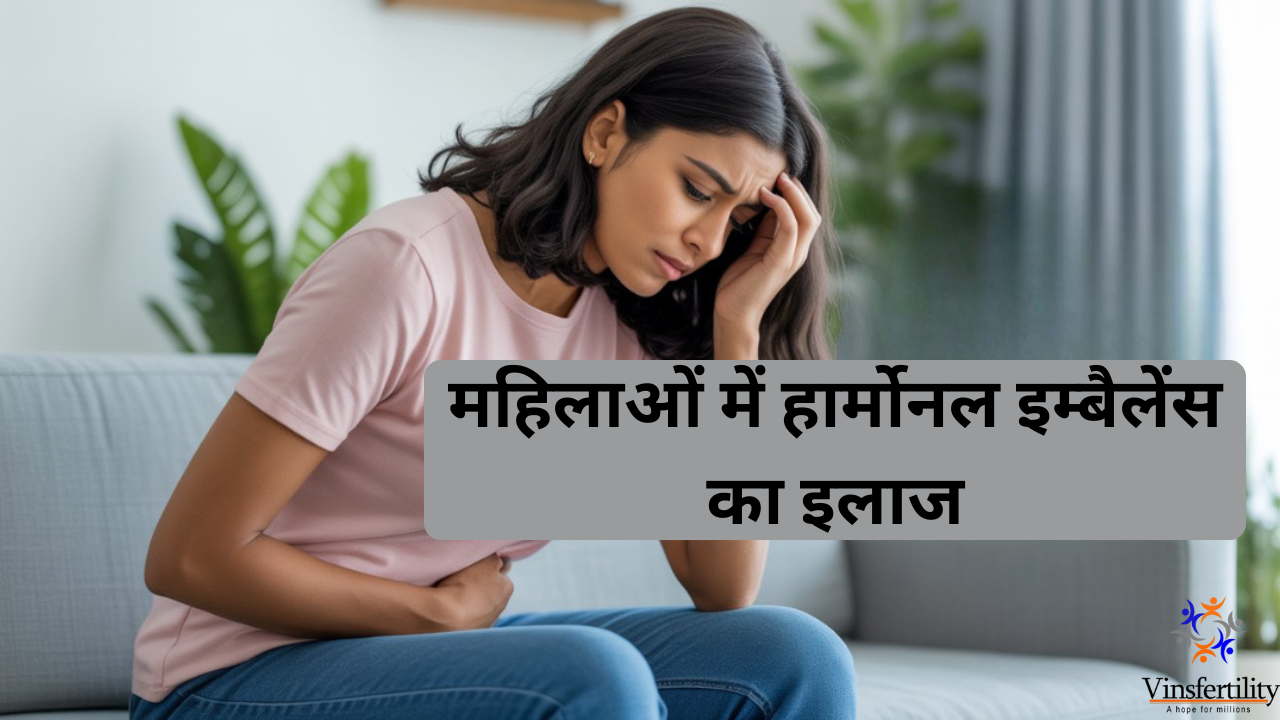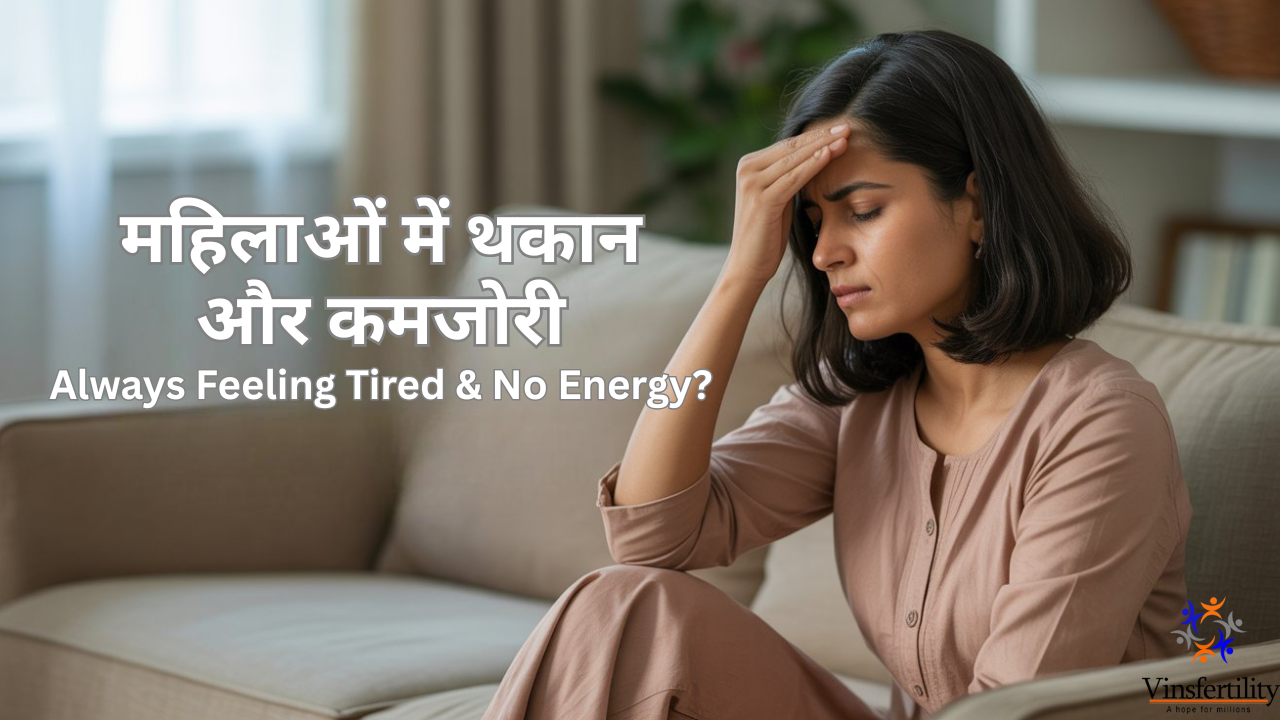
Postpartum Period | Emotional & Physical Symptoms | Hormonal Changes After Birth
What is the postpartum period?
Postpartum (or postnatal) refers to the period after childbirth. Most often, the postpartum period is the first six to eight weeks after delivery, or until your body returns to its pre-pregnancy state. But the symptoms and changes that occur during the postpartum period can last far beyond eight weeks.
-
During Postpartum period some major body and life changes are happens at the same. Some changes are physical for example, breast engorgement and vaginal bleeding.
-
Other changes occur due to changing hormones. The bottom line is, giving birth is a major physical and emotional challenge.
- Being a caregiver and adjusting to life with an infant during the postpartum period is also incredibly demanding.
Struggling to start or grow your family due to postpartum complications or secondary infertility? Many women face challenges conceiving again after childbirth, but modern options like IVF and surrogacy can offer a second chance at parenthood. Discover more about the surrogacy cost in india and explore the transparent and affordable surrogacy cost in Banglore to make an informed decision for your family's future.
What happens to your body?
-
Your body undergoes numerous changes following birth. Your uterus, which is where your baby was born, gradually returns to its typical size. It's normal to experience stomach pain or cramps; this indicates that your body is healing.
-
For a few days, you will also experience vaginal bleeding and discharge, or lochia for a few weeks. This way your body cleans out the leftover blood and tissue from pregnancy.
-
Your breasts will start making milk. They may feel heavy, full, or sore in the beginning. If you are breastfeeding, it can take some time to get used to it. Some moms get sore nipples at first, but this usually gets better with practice and support.
-
If you had a C-section, your belly needs extra care as it heals. Be gentle with yourself and follow your doctor’s advice.
How will you feel emotionally?
-
Your emotions can change a lot after giving birth. You may feel very happy and excited, but also tired, worried, or even sad sometimes. This is completely normal.
-
Many new moms experience "baby blues," which can make you cry easily or feel moody. These feelings usually go away after a week or two.

-
But if you feel very sad, hopeless, or have no interest in your baby or daily life for more than two weeks, it might be postpartum depression.
-
Postpartum depression is common among new mothers it is not your fault. So please talk to your family or your doctor for help and support.
-
Excessive worrying that occurs after having a baby is called postpartum anxiety. It can be accompanied by physical symptoms like losing sleep or heart palpitations.
-
Postpartum depression and postpartum anxiety can often come together. Treatment for postpartum anxiety can also involve medication or behavioural therapy.
Taking care of yourself
-
Taking care of a baby is a big job, but don’t forget to take care of yourself too.
-
You should try to take rest whenever you can, even if it means taking a nap during the day.
-
Try to eat healthy foods that give you energy, and drink plenty of water, especially if you are breastfeeding.
-
Don’t rush to exercise to get back in shape to your pre-pregnancy size. Your healthcare provider will let you know when it’s safe to exercise.
-
People who had a C-section birth may need to wait longer. Once you’re able to exercise, begin slowly so you don’t accidentally injure yourself.
-
If you feel sad, overwhelmed, anxious or stressed, talk to a friend, your partner or your healthcare provider about it. There are many resources available to support you.
When to call your doctor
You should contact your doctor right away if you:-
Bleed so much that you soak a pad in an hour contact to your doctor
-
If you have severe pain in your belly
-
If you get a fever or chills
-
When you feel pain and swelling in your breasts
-
Foul-smelling vaginal discharge.
-
Pain in your legs or ankles, especially with swelling.
-
Leaking pus or bloody discharge from your C-section incision.
-
If you feel very sad or think about hurting yourself or your baby, please consult to your doctor
You are not alone
-
The postpartum period can feel overwhelming sometimes but remember you are not alone. Many moms go through the same feelings and struggles.
-
Always be kind to yourself, give your body and mind sufficient time to heal.
-
Remember you have just did something amazing, you brought a new life into the world. You are strong and brave, and you deserve love, care, and support.
Source
- https://www.medicaid.gov/medicaid/quality-of-care/quality-improvement-initiatives/maternal-infant-health-care-quality/postpartum-care
- https://healthysd.gov/postpartum-exercise/?utm
Frequently Asked Questions (FAQ)
1. What is the postpartum period?The postpartum period is the time after childbirth when your body begins to recover and adjust. It usually lasts about six to eight weeks but can vary for each woman.
2. Is it normal to feel sad or emotional after giving birth?
Yes. Many new mothers experience “baby blues,” which include mood swings, crying, and anxiety. These usually resolve within two weeks. If feelings of sadness are severe or last longer, it may be postpartum depression, and you should talk to your doctor.
3. What is postpartum anxiety?
Postpartum anxiety involves excessive worrying and physical symptoms like insomnia or a racing heart. It’s common and treatable — talk to your doctor if you feel overwhelmed.
4. What physical changes can I expect after birth?
You may experience vaginal bleeding, breast engorgement, uterine cramps, and fatigue. If you had a C-section, you'll also need to care for your incision.
5. How can I take care of myself during the postpartum period?
Rest as much as possible, eat nutritious foods, stay hydrated, and accept help from family or friends. Talk about your feelings and don’t hesitate to ask for medical or emotional support.



.png)

.png)
